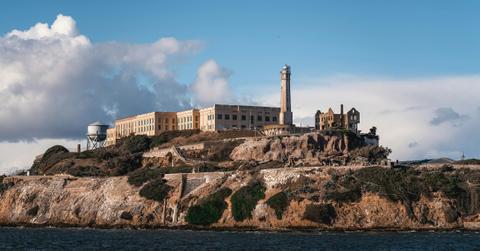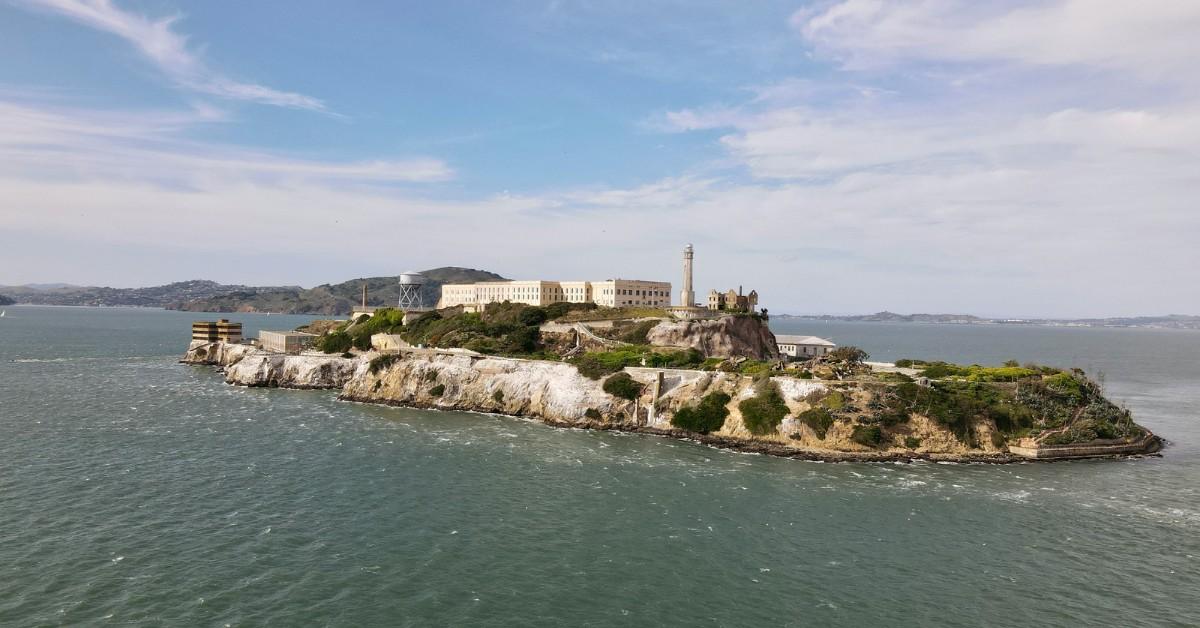Climate Change, Rising Sea Levels Are the Biggest Threat to Alcatraz
Erosion has become a major problem for the historic building.
Published May 6 2025, 2:10 p.m. ET

You may know the now-defunct Alcatraz prison these days thanks to its frequent appearance in media and movies. Flicks like Clint Eastwood's Escape from Alcatraz highlight how hard it is to leave the island that hosts the massive prison complex, and movies like The Rock show just how isolated the fortress-like location can be.
However, scientists are warning that the behemoth prison that has been the backdrop of so many stories may soon be a thing of the past.
That's because rising sea levels are threatening Alcatraz, and the island the prison calls home.
You can learn more about what they are saying about the melting glaciers and ice caps that are causing all the issues for Alcatraz below.

Rising sea levels are threatening Alcatraz Island.
Once a Civil War fort and an iconic prison system that housed notable villains like Al Capone and Machine Gun Kelly, Alcatraz closed its doors in 1963. Then, in 1972, CBS News said the U.S. Department of the Interior relinquished its claim on Alcatraz Island, opting to give it to the National Park Service's Golden Gate National Recreation Area.
It took a little more than a decade for the organization to convert the location into a National Historic Landmark, which is how it became a hot spot for tourists and migrating birds alike.
However, scientists say that it is all in danger of going away now that the island is facing its greatest villain yet: rising sea levels. The rising water is slowly chipping away at the island's foundation, prompting researchers to go to work to create a 3D map of the island so they can track the changes.
Climate change is the biggest threat to Alcatraz.
When it comes to the reason why sea levels are rising, experts say it has to do with the rising global temperatures, which are causing glaciers and other ice caps to melt, leading to water expansion.
While that may not seem like a big deal since no human occupants have called Alcatraz home in decades, the island has proven to be very important to the region's sea birds.
According to CBS News, the island is a key migration point for birds like pelicans, and in 1775 the location went by the name Island of Pelicans, and an estimated 11 species of bird nest on the island.
But, experts say that the island has the potential to become even more important to future birds who are likely to lose the nesting areas and food sources as sea levels continue to rise, like those who reside on the Farallon Islands.
Then there's the cultural significance of the island. The space holds a special significance to the indigenous people who used to call the area home. In the '60s and '70s, between when the prison closed and the National Park Service took over, a group of indigenous people occupied the island, declaring it Indian land in an effort to increase public awareness of the challenges facing local tribes.
The island is now thought of as the cradle of the Native American Civil Rights Movement, and to lose it to the sea seems like adding so much insult to injury.
However, the fate of the island is similar to other locations around the world facing the same plight, as climate change continues to take its toll on locations through extreme temperatures, harsh weather, and unprecedented droughts.
Hopefully something can be learned from Alcatraz and all the research going on to investigate the impact climate change is having on the island.